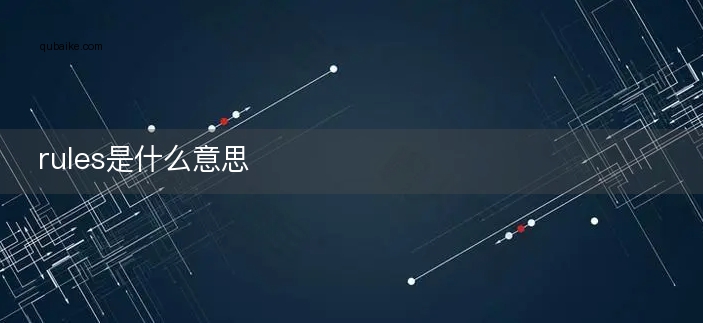rules
美['ruːlz] 英['ruːlz]
n. 规则;规章;制度
sp. 名词rule的复数形式.
英英释义
名词rule- a principle or condition that customarily governs behavior
- something regarded as a normative example
- prescribed guide for conduct or action
- (linguistics) a rule describing (or prescribing) a linguistic practice
- a basic generalization that is accepted as true and that can be used as a basis for reasoning or conduct
- the duration of a monarch's or government's power
- dominance or power through legal authority
- directions that define the way a game or sport is to be conducted
- any one of a systematic body of regulations defining the way of life of members of a religious order
- a rule or law concerning a natural phenomenon or the function of a complex system
- (mathematics) a standard procedure for solving a class of mathematical problems
- measuring stick consisting of a strip of wood or metal or plastic with a straight edge that is used for drawing straight lines and measuring lengths
动词rule- exercise authority over; as of nations
- decide with authority
- be larger in number, quantity, power, status or importance
- decide on and make a declaration about
- have an affinity with; of signs of the zodiac
- mark or draw with a ruler
- keep in check
例句
用作名词(n.)- I am thoroughly conversant with all the rules.我对所有的规则了如指掌。
- His behavior transgressed the moral rules of the social conduct.他的行为违背了社会行为的道德准则。
- The rules will remain in effect until October.这些规章将实施到十月份为止。
- When the rules for police procedure were laid down, a lot of grey areas remained.警方的程序规章定立后,遗留下许多难以处理的灰色区域。
- Many old rules are not in force any more.许多旧的制度都已经失效。
THE END
